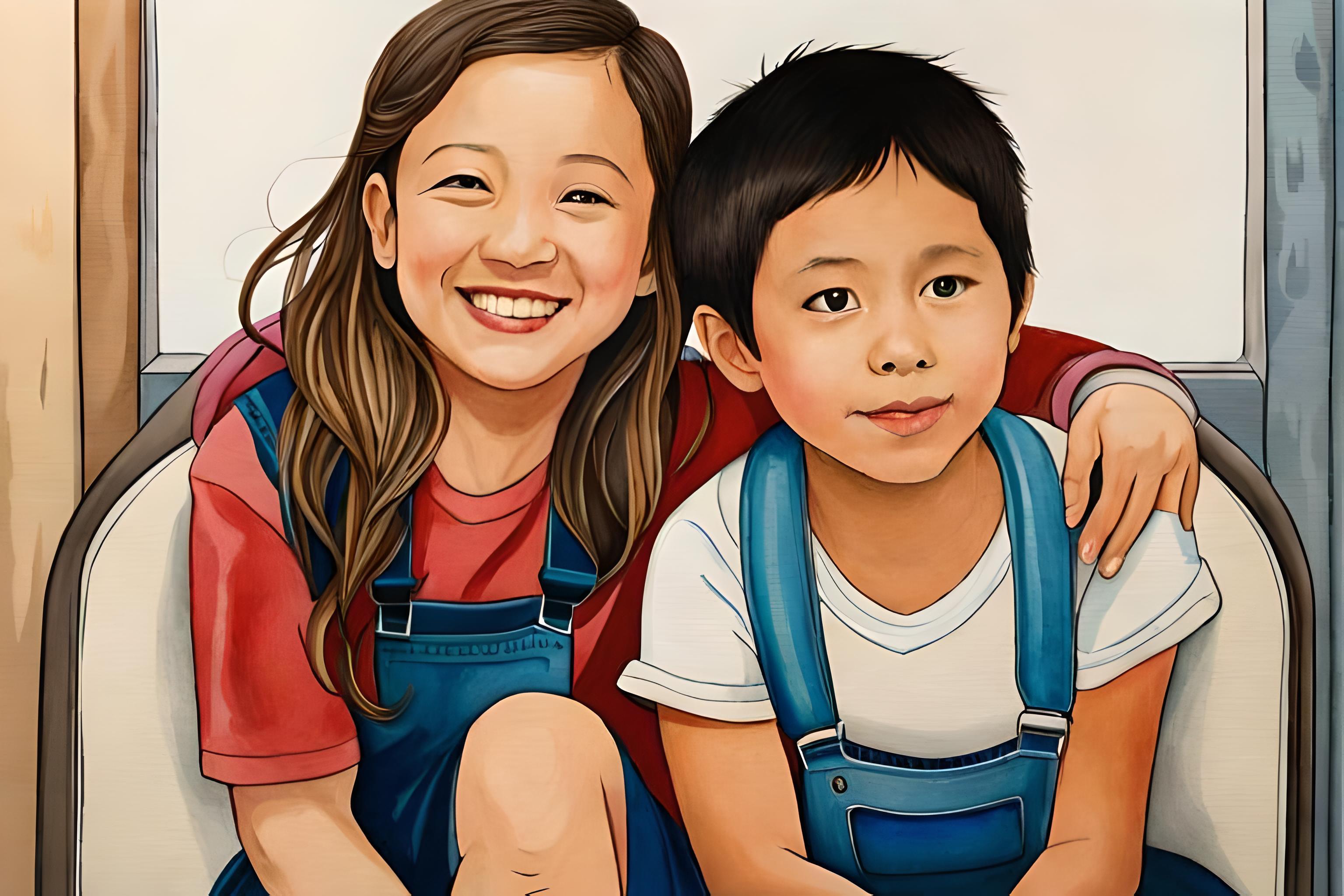Caring for Siblings of Kids With Disabilities: Nurturing their Well-being and Bond
Caring for a child with disabilities can be a challenging and rewarding journey that involves the entire family. While much attention is often focused on the needs of the child with disabilities, it is equally important to recognize and support the siblings who play a vital role in their lives. This article explores the unique experiences of siblings of kids with disabilities and provides practical strategies for nurturing their well-being and strengthening sibling bonds.
I. Understanding the Sibling Experience
A. Emotions and Challenges
Siblings of kids with disabilities often experience a range of emotions, including love, compassion, frustration, and guilt. They may face unique challenges, such as navigating complex family dynamics, balancing their own needs with caregiving responsibilities, and grappling with feelings of resentment or isolation. It is essential to acknowledge and validate these emotions, creating a safe space for siblings to express their feelings openly.
B. Shifting Roles and Responsibilities
Siblings of kids with disabilities may assume additional responsibilities within the family. They may take on caregiving tasks, advocate for their sibling's needs, or provide emotional support. These shifting roles can impact their daily lives, relationships, and personal development. Recognizing and appreciating their contributions can foster a sense of purpose and strengthen their self-esteem.
C. Impact on Sibling Relationships
The relationship between siblings is a powerful bond, and having a sibling with disabilities can bring both unique challenges and opportunities for growth. Siblings may experience moments of closeness, empathy, and shared experiences, but they may also grapple with jealousy, competition, or feelings of neglect. Supporting healthy communication, fostering understanding, and promoting mutual respect can help build resilient and nurturing sibling relationships.
II. Strategies for Supporting Siblings
A. Open Communication and Validation
Encourage open and honest communication within the family, allowing siblings to express their thoughts and emotions freely. Actively listen to their concerns, validate their experiences, and provide reassurance. Regular family discussions can create a supportive atmosphere where siblings feel heard and understood.
B. Individual Time and Attention
Allocate dedicated one-on-one time with each sibling, ensuring they receive the individual attention they need. This can involve engaging in shared activities, going on outings, or simply having meaningful conversations. These moments of undivided attention strengthen the sibling bond and provide a sense of importance and connection.
C. Providing Age-Appropriate Information
Keeping siblings informed about their sibling's disability in an age-appropriate manner is crucial. Openly discussing their sibling's challenges and strengths helps promote understanding, empathy, and acceptance. Providing resources, books, or access to support groups tailored to their age group can further enhance their understanding and coping abilities.
D. Respite and Self-Care
Recognize the importance of respite and self-care for both parents and siblings. Arrange for occasional breaks or support from trusted family members, friends, or respite care services. This allows siblings to recharge, pursue their own interests, and maintain their overall well-being.
E. Peer Support and Sibling Groups
Encourage siblings to connect with other siblings of kids with disabilities through sibling support groups, workshops, or online communities. These peer connections provide a unique space for shared experiences, empathy, and the opportunity to learn from one another. Sibling groups can be a valuable source of support and understanding.
III. Celebrating Sibling Bond and Individuality
A. Sibling Bonding Activities
Promote sibling bonding activities that foster shared experiences and create lasting memories. This could involve engaging in hobbies together, planning special outings or trips, or participating in sibling-focused workshops or camps. These activities strengthen the sibling bond and create a sense of unity and support.
B. Recognizing Individual Achievements
It is important to recognize and celebrate the individual achievements of siblings. Whether it's academic success, personal milestones, or pursuing their own passions, acknowledging their accomplishments helps build their self-confidence and reinforces their unique identity outside of the sibling dynamic.
Conclusion
Caring for siblings of kids with disabilities requires a thoughtful and compassionate approach that addresses their unique experiences and needs. By fostering open communication, providing individual attention, supporting self-care, and celebrating both the sibling bond and individuality, we can create a nurturing environment where siblings thrive. Together, we can strengthen the family unit and ensure that all children, including siblings, receive the love, support, and opportunities they deserve.










